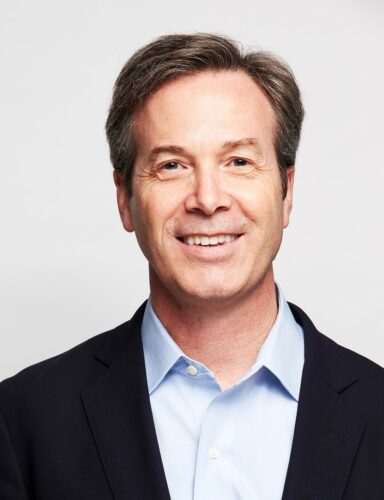For some Americans, the phrase “climate change” conjures images of barren lands crippled by drought and forests decimated by wildfires. For others, climate change is a distant thought, a phenomenon entirely unrelated to human activity.
For over a decade, the Yale Program on Climate Change Communication (YPCCC) has studied Americans’ changing perceptions of climate change and provided critical public opinion surveys for news outlets such as CBS, NBC, CNN, and The New York Times. YPCCC was founded in 2007 and is directed by Anthony Leiserowitz, a senior research scientist at the Yale School of the Environment.
Leiserowitz’s journey into the realm of climate change communication was unanticipated—a confluence of his seemingly disparate interests and serendipity. As an undergraduate, Leiserowitz majored in International Relations, studying Cold War politics. But in 1990, he was offered a position at the Aspen Global Change Institution, a research center in Colorado, surrounded by snow-capped mountains and dense conifer forests. For four years, Leiserowitz immersed himself in climate studies among the world’s leading environmental scientists, learning about carbon pollution and climate models.
However, Leiserowitz eventually grew frustrated with the narrow focus on natural science. “The only reason we have [global warming] is because of people [and their decisions],” Leiserowitz said. “This isn’t a natural science problem. This is a human science problem.”
This realization would guide the rest of his career. Leiserowitz devoted himself to studying human responses to the climate crisis, earning a master’s and doctorate in Environmental Science, Studies, and Policy at the University of Oregon. He then spent four years at Decision Research, a research institute in Oregon, where he studied public risk perceptions and decision making, seeking the answers to pivotal questions concerning the climate crisis: How do people perceive the natural and social worlds? What are the psychological and political factors that shape human decision-making? How do we better communicate climate change and engage people in climate science?
Leiserowitz founded YPCCC in 2007, when he was hired by the Yale School of Forestry and Environmental Studies—recently renamed as the Yale School of the Environment. The Yale Program includes psychologists, geographers, political scientists, sociologists, and others who conduct studies on public opinion and engagement. YPCCC has spearheaded research on public attitudes regarding climate change in more than 120 countries, including the United States, China, India, and Brazil. The program has also partnered with governments, media organizations, and companies, including Facebook and Google, supporting their climate change communication goals.
Leiserowitz reiterated that all of our lives are entangled with the burning of fossil fuels: they are woven into the clothes we wear, the electronics we purchase, and the appliances we use. Every time we buy a product, we contribute to climate change. Every time we vote, we choose leaders who will either support or oppose climate policies. Multiply this by seven-and-a-half billion people, and the need for large-scale messaging becomes clear.
“One of the major shifts that we’ve seen change over the past ten years is recognizing how important communication is as a way to engage the broader society itself,” Leiserowitz said. YPCCC’s research has found that many people perceive global warming as a remote issue. “Many Americans continue to think of climate change as a distant problem—that this is about polar bears, or maybe developing countries, but not the United States, not my state, not my community, not my friends, not my family, not me,” Leiserowitz said. As a result, the issue is often psychologically distant, blending into the noisy background of people’s lives, where it doesn’t seem salient.
To engage a national audience in climate change, Leiserowitz also founded Yale Climate Connections (YCC). A climate change news service and national radio program, YCC broadcasts a new one-and-half-minute story about climate change every day on more than 680 frequencies nationwide. YCC’s listeners are not just located in liberal regions of the U.S.; in fact, two-thirds of its stations are located in congressional districts that voted for former president Donald Trump. YCC’s stories feature the voices of Americans from all backgrounds—racial justice activists, religious leaders, business owners, doctors, farmers—communicating that climate change is harming Americans right here and now.
Currently, Leiserowitz is working to build a Global Center for Climate Change Communication at Yale to foster international research and public engagement, at a scale equal to the size of climate change itself.

